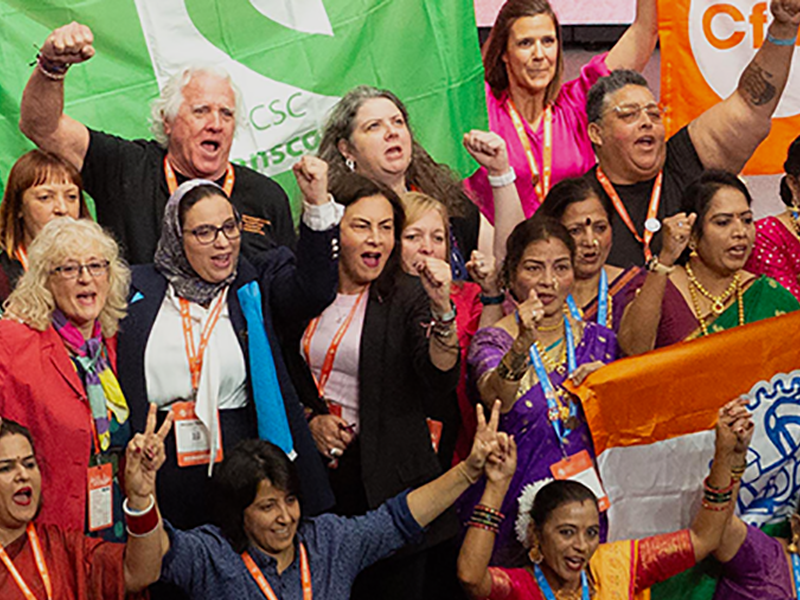Crew based in Belgium, Germany, Italy, the Netherlands, Portugal and Spain are striking for 24 hours in response to the company’s continued failure to deliver a fair deal for its workers. While some negotiations have taken place and a handful of recognition deals have been signed, the majority of Ryanair workers still have not seen any improvements in pay or conditions.
These strikes come a week after the company’s annual general meeting, at which Ryanair was severely criticised by unions and shareholders alike for its handling of negotiations and its wider corporate governance model.
In advance of the AGM, the International Transport Workers’ Federation (ITF) and the European Transport Workers’ Federation (ETF) wrote to shareholders asking them to oppose the re-election of chairman David Bonderman. This call was supported by shareholder advisory firms and some major institutional shareholders, all of whom share concerns about the impact of Ryanair’s antiquated corporate governance model on its industrial relations.
While Mr Bonderman remains in post, with a third of shareholders opposed to his re-election his position as chairman is now untenable. The strikes taking place this week are further evidence of workers’ lack of faith that the Ryanair leadership takes their concerns seriously.
Furthermore, earlier this month the company once again demonstrated its immaturity by attempting to close down a new cabin crew union in Poland. Rather than entering into negotiations in good faith, Ryanair instead refused to accept the union’s existence and announced it would move all crew onto self-employment contracts by next month.
In this context of strained industrial relations, ITF and ETF believe that adopting worker representation at boardroom level would go some way to alleviating the situation. This is already being recommended for companies in the latest revisions to the UK Corporate Governance Code, which the Republic of Ireland also unilaterally adopts.
ITF and ETF support all lawful industrial action undertaken by our affiliates with the aim of winning a fair deal for Ryanair workers. If Ryanair does not overhaul its corporate governance practices and meet workers’ demands, further strikes are likely as we enter the autumn.
Gabriel Mocho Rodriguez, ITF Civil Aviation Secretary, said: “These strikes show that, despite its recent rhetoric, Ryanair has a long way to go before it enjoys sustainable industrial relations. You cannot claim negotiations are going well when workers in six countries on your network decide to take simultaneous strike action.”
“Last week we saw the widespread concerns about Ryanair’s business model expressed at its AGM. Shareholders want a change, and worker representation in the boardroom would help ensure a much healthier level of independent challenge to the executive management. Ryanair needs to start operating in the interests of all its stakeholders.”
François Ballestero, ETF Political Secretary for Aviation and Tourism, said: “Nine months on from the announcement that it would recognise unions, Ryanair should not be facing this level of industrial action. Ryanair must accept that this unrest will not disappear until it addresses the fundamental issues, so that workers’ contracts explicitly recognise that the national law and jurisdiction in the country of their home base applies.”
“In addition, it is paramount that crew enjoy equitable standards regardless of whether they are directly employed by Ryanair or through one its labour agencies. It is a key principle of our Fair Transport campaign that no employer can renege on its social responsibilities at the expense of both workers and its responsible competitors.”



